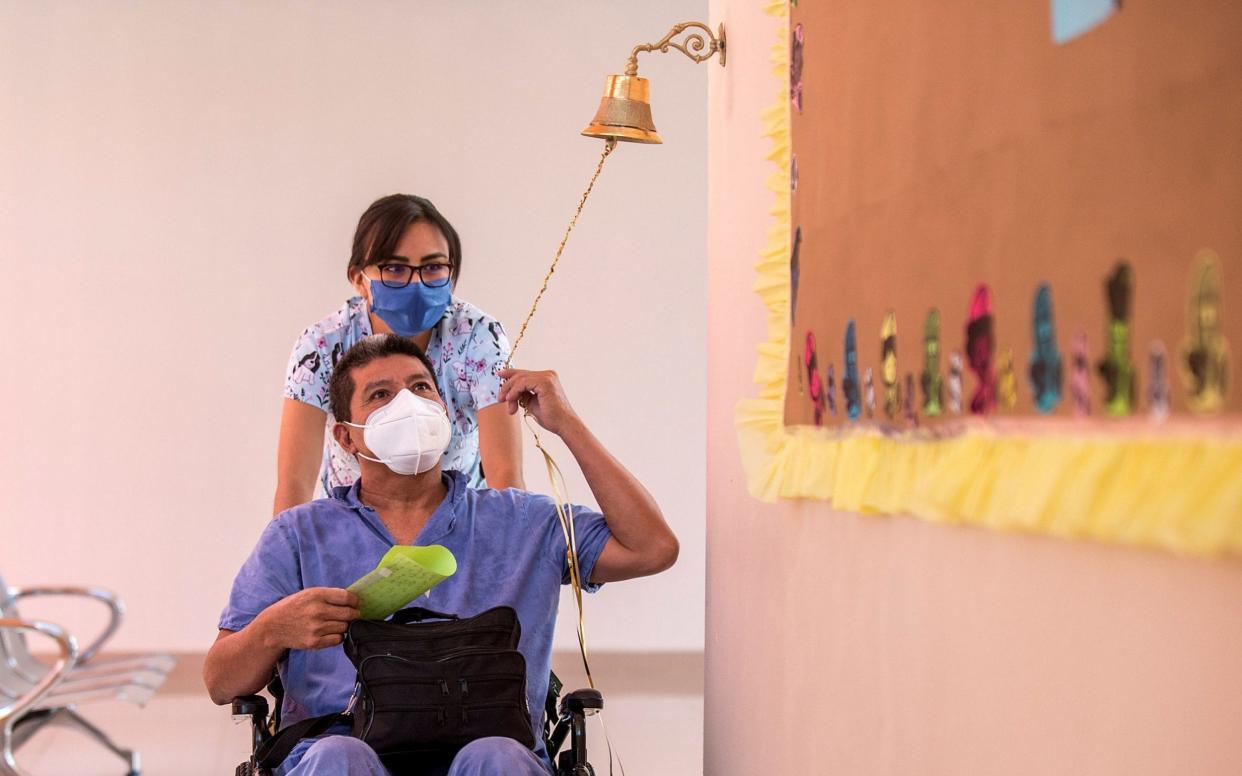Nine in 10 people have persistent symptoms months after recovering from severe Covid-19, says study


The vast majority of patients tracked after recovering from a severe Covid-19 infection in Italy had persistent symptoms two months later, researchers have found.
According to a study monitoring 143 people who had been hospitalised after contracting the disease, 87 per cent of patients reported at least one adverse symptom 60 days after first falling ill – despite testing negative for Covid-19.
Fatigue was the most common consequence, reported by 53 per cent of people, while 43 per cent had difficulty breathing and more than 20 per cent still experienced joint or chest pain. Some 44 per cent said their quality of life had worsened.
Though the study, published in the Journal of the American Medical Association, is small and lacks a control group, it adds to mounting evidence that a significant proportion of people – often referred to as “long haulers” – experience persistent and long lasting health effects post Covid-19.
“This is really disturbing… but entirely consistent with what I’m seeing in patients hospitalised with Covid-19 who recover,” said Dr Christian Ramers, an infectious disease expert and head of the Population Health Centers of San Diego. “It is rare to find one who bounces back within a few weeks.”
Dr Bharat Pankhania, a senior clinical lecturer at the University of Exeter, added that while the size of the study means the results are “inconclusive”, he agreed with the study's authors that “there may be a Covid-19 disease syndrome and that we must follow it up”.

The study comes after Dr Anthony Fauci, the top infectious disease expert in the US, told a conference on Thursday that there may well be lasting impacts of a coronavirus infection.
“If you look anecdotally, there is no question that there are a considerable number of individuals who have a post-viral syndrome that in many respects incapacitates them for weeks and weeks following so-called recovery,” said Dr Fauci, director of the National Institute of Allergy and Infectious Diseases and a leading member of the White House's Coronavirus Taskforce.
The authors of the JAMA study, who are based at the Gemelli University Hospital in Rome, said that researchers and clinicians have so far focused on the “acute phase” of a coronavirus infection, “but continued monitoring after discharge for long-lasting effects is needed”.
In the UK, Matt Hancock announced on Sunday an £8.4 million research study into the long-term health effects of Covid-19, which will be led by the NIHR Leicester Biomedical Research Centre.
Speaking on the BBC's Andrew Marr show, the health secretary said it was difficult to gauge the scale of the issue, but it was clearly “a really serious problem”.
There are also signs that even a mild infection can have lasting consequences.
“It is not good enough to say you will be okay if you’re in the younger age group, go out and get your infection,” said Dr Pankhania. “Because emerging and anecdotal evidence suggests you might get Covid-19 and then be lumbered with a post viral infection syndrome that takes a long time to recover from.”
Early on in the crisis, researchers at King’s College London developed a Covid-19 app for people to record their symptoms daily. They have found that one in ten people have symptoms lasting for between eight to 10 weeks, with some seeing symptoms fade away only to come bouncing back.
And in a separate study tracking 202 Italian patients published in JAMA last week, some 10 per cent of patients with mild Covid-19 infections had not recovered their sense of taste or smell during the month-long observation period.
Protect yourself and your family by learning more about Global Health Security


